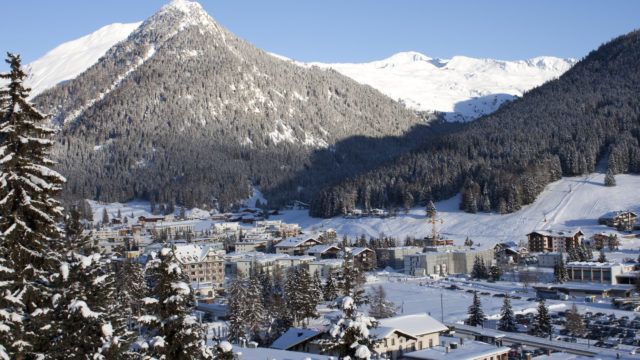The 46th Annual Meeting of the World Economic Forum took place from 19th January for four days in Davos, Switzerland. The main agenda was entitled “Mastering The Fourth Industrial Revolution”, with many of the delegates discussing the impact of rapid technological shift on many industries. The mood was uncertain – some might even say gloomy – with Marc Benioff, CEO of Salesforce, stating that “as a society, we are entering uncharted territory.”
A report released by the World Economic Forum at the start of the meeting made the prediction that around 5 million jobs will be lost due to technological changes by 2020. Microsoft CEO Satya Nadella told those in attendance that his perspective was one “from a place of optimism and hope.”
The outlook from others was less bright. Whilst he saw the Fourth Industrial Revolution as beneficial in the long-term, US Vice-President Joe Biden seemed to suggest that it could bring about the end of the middle class as well as widening inequalities. “How will the warehouse worker who used to ship your order, or the salesman who used to take it, now make a living,” said Biden, “when he or she is no longer needed in that venture?”
One of the biggest concerns revealed itself to be the increasing stress in the oil and commodity complex. Bankers and investors alike were anxious about the impact this will have on asset prices, as well as the economies and capital flows in emerging markets.
Unsurprisingly, another major area of consternation was the future of Europe. Hot debate topics included the continued threat of terrorism, the refugee crisis, poorly coordinated bank bail-ins, the best methods of funding growth in Europe, and the genuine risks that could be brought about by “Brexit” should it come to pass.
Investors might be pleased to hear that, with regard to funding growth, the consensus that Europe desperately needs greater variety in its funding market continues to gain weight. However, the initial problems seen through the poor coordination of Banking Union – especially in Portugal – means the confidence in some fringe investments of international investors is likely to have taken a hit.

Comments on Davos 2016 • What you may have missed
There are 0 comments on Davos 2016 • What you may have missed